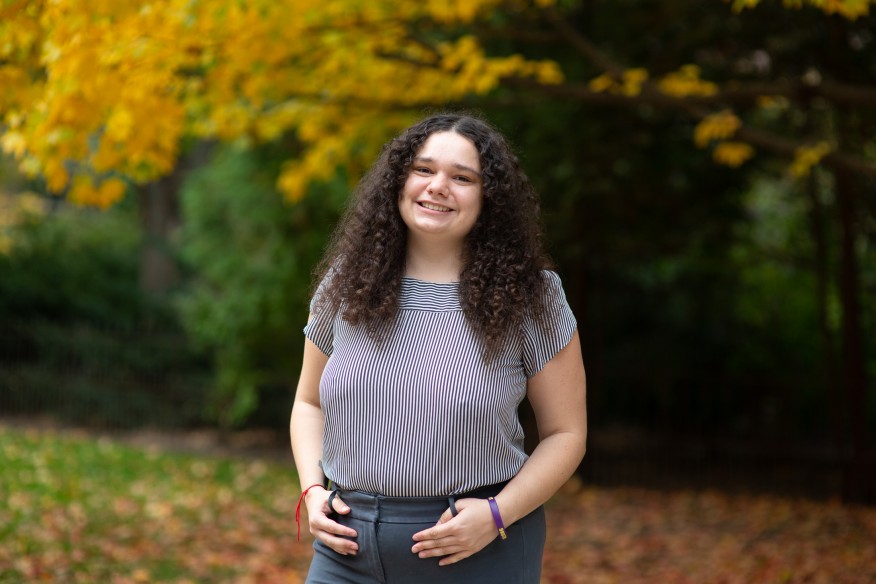“They called me ‘It’ and ‘Thing.’ They took belts after me and made me say, ‘I'm a Satanist. I'm a prostitute,’ because I was gay.”
That was Brittney Barros’s life in foster care at age 11.
Barros’s experience with that family led to her joining the case of Fulton v. City of Philadelphia. The U.S. Supreme Court unanimously found that Philadelphia could prohibit discrimination by their contracted foster agencies against LGBTQ+. Fortunately, Barros found a foster family with whom she stays in touch to this day.
Foster care ends at 18, but the traumas do not. Even after Barros found that second family, the path to her master’s degrees – an MSW and a master’s from the Ford School of Public Policy – was challenging.
“I applied and came to campus without the privileges most students take for granted,” Barros says. “I am the exception, not the norm.” She points out that only three percent of youth in foster care will even earn bachelor's degrees. “I am getting a social work degree so that people like me can become the norm,” she says.
Barros grew up in Ypsilanti. Her father was also a former foster child. “My mom had substance abuse issues and didn't get the help she needed from the system,” Barros says. When Barros came out to her family, they rejected her.
After her two stints in foster care, Barros went to earn her bachelor’s at Eastern Michigan University. Then her stepfather died suddenly of an overdose. Her mother’s custody of her 14-year-old sister had long since been terminated, so Barros took custody of her sister. “Taking care of my sister was a beautiful blessing,” Barros says, “but it was very sudden.”
Barros at 20 was struggling with PTSD, depression and anxiety. She was supposed to receive accommodations at school, as directed by the Americans with Disabilities Act (ADA), but some professors did not want to hear about it. (ADA accommodations for students with psychiatric conditions may include: preferential seating in class, extra breaks, and private feedback on academic performance.) With her sister to care for, Barros had to drop out, but she ultimately returned and finished her degree.
Before starting her MSW, Barros took a year off to work as an operations specialist at a homeless shelter. “It was the best decision of my life,” she says. “I had time to heal from what happened to me during undergrad.”
All the while, Barros had her eye on U-M. She visited campus and found “the people were absolutely amazing.”Once Barros enrolled, everyone was extremely mindful of her accommodations. “It really, truly helped my trajectory,” she says.
Currently, Barros is enrolled at the Ford School for her second master’s. “I want to create hope and policies for children in foster care, juvenile justice and mental health,” she says. “I want to harmonize public policy and social work. I want to start as a foster care worker, then work for the Children's Bureau. Eventually, I want to run for Congress! One thing I've been told my whole life is, ‘Brittney, you're going to be president one day!’”
What would future President Barros tell those with nontraditional trajectories who are now looking at the U-M School of Social Work?
“You will thrive. You will blossom into a beautiful human being. Don't let anyone take that away from you. You can advocate and you can push for a better society. Just stay true to yourself."
